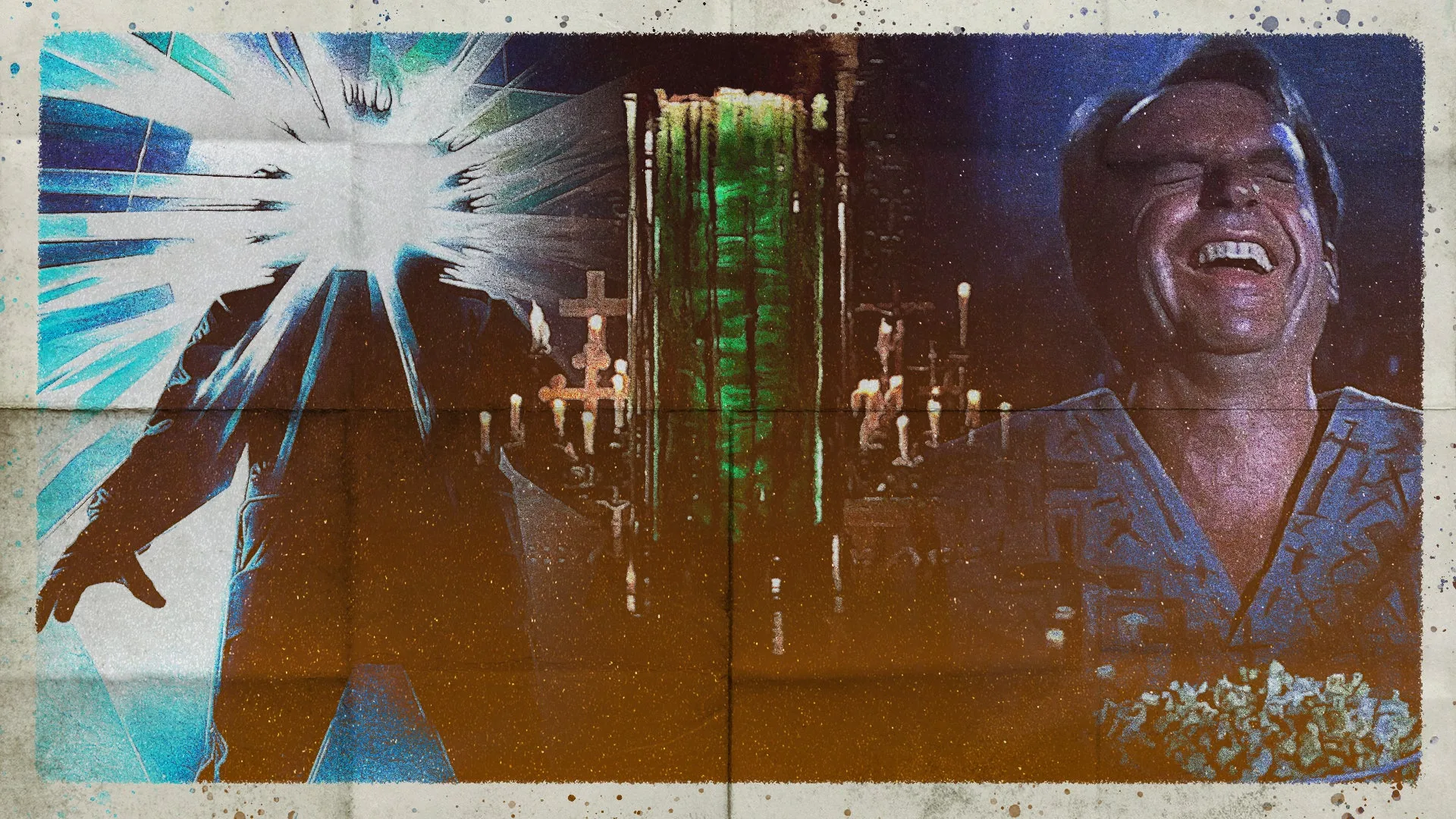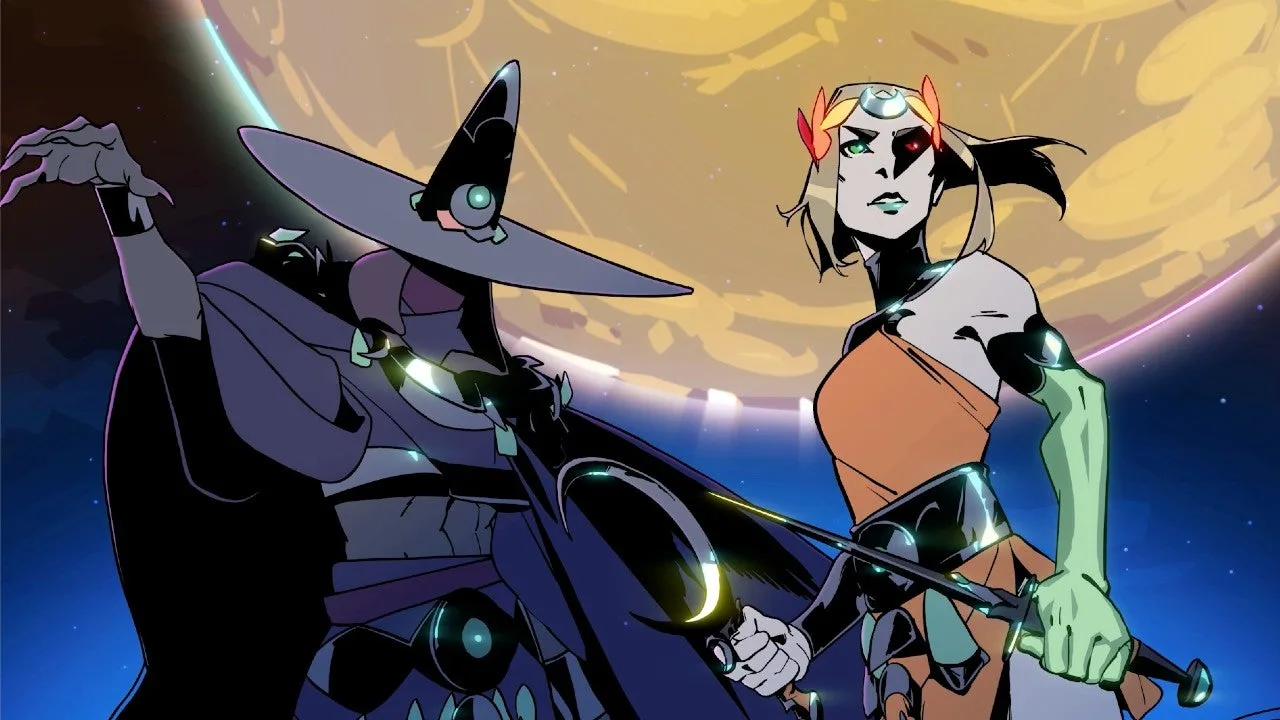Warning: Full spoilers follow for Dune: Part 2 and Dune Messiah, the second book in the series.
There are no heroes in Dune: Part 2. While Timothée Chalamet’s Paul Atreides may be framed in both the marketing and film itself in a way modern blockbusters often do for such figures, positioning him as the one who will overcome tough odds to triumph as a hero, he is anything but. This is the point. The film takes the idea of a courageous leader and gradually poisons it. Even as the staggering Dune 2 makes a few substantial changes from the late author Frank Herbert’s text, it also cuts to the very heart of what he was getting at about heroes.
Though we may be tempted to rally around them, beware false prophets in sheep’s clothing. For those who come to this sequel expecting a story of “good triumphing over evil,” you’re in for a rather rude yet necessary awakening. This isn’t that type of sci-fi story. Instead, it is more of a bridge between Dune: Part 1 and the even bleaker future depicted in Herbert’s subsequent book Dune Messiah. And it is a vision that, for all who open their mind to it, is valuable in the modern movie landscape. Not only could cinema use more feel-bad sci-fi blockbusters like this, but director Denis Villeneuve has proven he is the maniac to pull these types of films off.
The Deconstruction of the Hero
You see, more important than the sense of spectacle is how Villeneuve remains attuned to what the book was guiding us towards. While the sandworms and battle scenes are magnificent, Herbert’s deconstruction of the hero is what most leaps off the page onto the screen. Though Dune Messiah ends up practically shouting to readers this prevailing point – part of the author’s attempt to make explicit his true intentions – Villeneuve is already delicately weaving this sinister subtext into his films. Dune: Part 2 shows how our “saviors” can also be the ones who set in motion the events that will obliterate millions of lives. Just as is the case in our world, such figures are valorized and elevated at our own peril.
Paul begins to fall prey to his own worst impulses. His quest for revenge against House Harkonnen and the Emperor who killed his father happens to initially align with what the Fremen believe is their salvation. However, we can see the cracks beginning to form. They will soon grow larger before things shatter, with the pieces never to be put back together. For every moment that would otherwise represent triumph in a more conventional film, like when Paul reunites with his old friend Gurney Halleck or completely wins over the Fremen with a rousing speech, we are instead left with a growing sense of dread.
For every moment that would otherwise represent triumph in a more conventional film, we are instead left with a growing sense of dread.
This is conveyed to us in what could otherwise be throwaway conversations, like when Paul suddenly lashes out at his mother when overcome by anger, just as it is in bigger moments such as when he embraces the prophecy that he is the one by domination rather than diplomacy. These moments might seem like standard “rah-rah” story beats in isolation as we ramp up to the moment where the hero takes charge. But taken together along with the moment where Paul gives up any pretense about trying to protect people, they steadily accumulate into the beginning of the end. That there is an almost shrieking alarm only some seem to hear makes it all the more disquieting. As we see how the remaining skeptics among the Fremen go from being initially dismissed to entirely drowned out by the roar of Paul’s fighters, we feel this dread in the absence of their voices. As they increasingly fade into the background while a single figure emerges into the forefront, the very ground has disappeared from under us.
This is where the cold nature of Dune: Part 2 emerges not as a bug, but as a feature. Villeneuve drops us into this sense of freefall just as all of the characters seem not to notice the danger. It is a work of cinema that is made to tear down the monuments we build to heroes. Unlike sci-fi films like the largely safe Star Wars, whose recent trilogy culminated in one of the most desperate and embarrassing attempts to placate fans, Dune: Part 2 uncovers the ugly truths that inform how, why, and what happens when we worship heroes. This is the type of bold blockbuster filmmaking that pushes us to look into ourselves.
Frank Herbert and the ‘Charismatic Leader’
Though the film captures the scale of the conflict and the jostling for power that was in the book, the reason it all works is because Villeneuve is channeling the same central idea Herbert was examining. The author, while not without flaws himself, saw the way charismatic leaders of his era were able to win over followers and lead them marching towards grim futures that can’t be undone. As Herbert said in a 1985 speech at UCLA, “I wrote the Dune series because I had this idea that charismatic leaders ought to come with a warning label on the forehead ‘may be dangerous to your health.’” The author didn’t stop there either as he specifically argued that “one of the most dangerous presidents that we’ve had in this century was Jack Kennedy because people said ‘Yes sir, Mr. charismatic leader, what will we do next?’ and we wound up in Vietnam.”
While we like to imagine that the villains of history will be the ones we can see coming from a mile away, life is not so simple and the opposite can be just as true. They can be people who give inspiring speeches that move us to action, only to then use the power that we have given them to unleash devastation on the world that we may also bear the brunt of. With Dune: Part 2, we see Paul not as a villain, but as someone we think may actually be the hero. In reality, the line between the two is not fixed and can become blurred to the point of nothingness.
Just as Herbert found a balance between telling a thrilling story as a more terrifying reality waits in the wings, so too does Villeneuve. Every moment of victory for Paul and the thousands that follow him is undercut by painful juxtapositions that are quite tricky yet still necessary to pull off.
There are multiple examples where Villeneuve threads the needle. For instance, when Paul manages to win the Fremen over just before they are about to go into battle, we must believe that he is charismatic enough to convince them – and us – that they will win this fight. At the same time, we can hear the cruelty creep into his voice and the way he lashes out. The film calls attention to rumblings of dissent at this just for it to be swallowed up as he keeps pushing. Later, when he fights Austin Butler’s sociopathic Feyd-Rautha, the two are equals in more than just battle. Each, as we now see, is capable of killing without any hesitation. The film finds tension and suspense from seeing Paul being seriously wounded, though the subsequent turning of the tables is an empty victory. The film doesn’t invite sympathy for Feyd-Rautha, but it makes clear that he has been surpassed by a man who is capable of the same depths of cruelty.
While the hazy visions Paul has of a dark future make it sufficiently obvious what is on the horizon, the moment he stops caring about these visions reveals how hauntingly – and easily – he can compartmentalize away the horrors he is setting in motion. It’s like we’re seeing Paul become a man who is more like Feyd-Rautha than a hero to save the world. The two, while appearing quite different externally, are each internally driven by a shared hunger for power. The “paradise” that Paul promises to build is not so different from the arena Feyd-Rautha fought in. It’s all about finding a way to gain favor for the cheering masses as you demonstrate how many you will kill for them. How terrifyingly little it takes for a genocide to be set in motion by those with the power to do so.
How terrifyingly little it takes for a genocide to be set in motion by those with the power to do so.
So as the camera cuts to Zendaya’s Chani, who supplants Gurney Halleck as the story’s moral conscience who may be too late to stop what’s coming, the moment carries the most weight. While her role is expanded from the book, the way she is the only one who chooses to see Paul for who he really is means she’s an embodiment of everything Herbert was laying out. Villeneuve encapsulates the author’s critique, bringing it to life as we march closer and closer to death.
As the director has recently said in his praise of the visual power of cinematic storytelling, it is the nonverbal that communicates all of this. The terrified look of Chani as she sees what is to come, yet can’t stop what Paul has set in motion, cuts deeper than any crysknife the characters wield. It’s the look of someone who sees the truth, but only when it’s too late to prevent the worst consequences of it. That Villeneuve closes on Chani for his final shot twists this knife even further as she, and we alongside her, realize that there is no real salvation awaiting her in the desert. No matter how desperately she may seek to escape, the destruction of countless lives is only beginning. Paul’s chant of “Long live the fighters” rings in the back of our minds from the moment he unleashes the Fremen. The tragedy comes as we see etched in Chani’s eyes how short, for them and the universe, their lives may be.
For more, check out our Dune: Part 2 ending explained, watch Denis Villeneuve pick his favorite shots from his movies, or dig in on why Feyd-Rautha is the twisted mirror of Paul Atreides.



